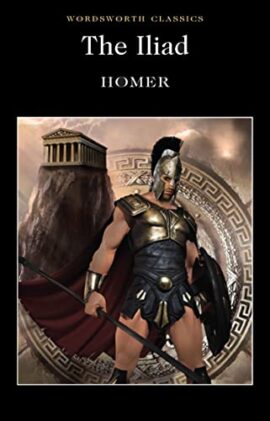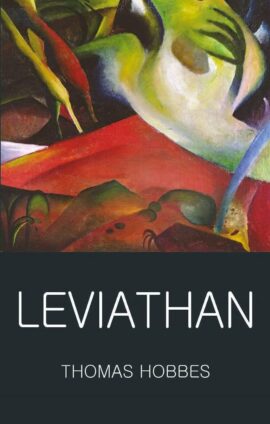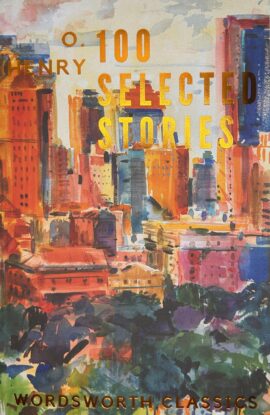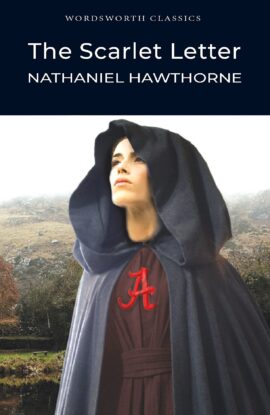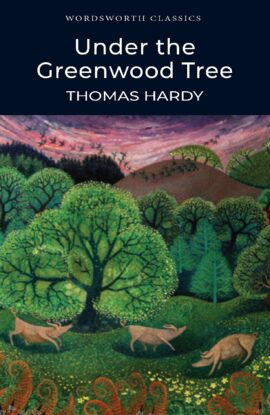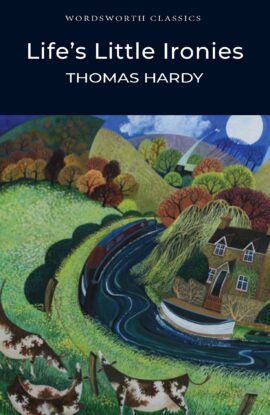Affichage de 325–336 sur 1221 résultatsTrié par popularité
Odyssey
With an Introduction and Notes by Adam Roberts Royal Holloway, University of London Homer's great epic describes the many adventures of Odysseus, Greek warrior, as he strives over many years to return to his home island of Ithaca after the Trojan War. His colourful adventures, his endurance, his love for his wife and son have the same power to move and inspire readers today as they did in Archaic Greece, 2800 years ago. This poem has been translated many times over the years, but Chapman's sinewy, gorgeous rendering (1616) stands in a class of its own. Chapman believed himself inspired by the spirit of Homer himself, and matches the breadth and power of the original with a complex and stunning idiom of his own. John Keats expressed his admiration for the resulting work in the famous sonnet, 'On first looking into Chapman's Homer': 'Much have I travelled in the realms of gold...'
The Iliad
With an Introduction and Notes by Adam Roberts, Royal Holloway, University of London. The product of more than a decade's continuous work (1598-1611), Chapman's translation of Homer's great poem of war is amagnificent testimony to the power of The Iliad. In muscular, onward-rolling verse Chapman retells the story of Achilles, the great warrior, and his terrible wrath before the walls of besieged Troy, and the destruction it wreaks on both Greeks and Trojans.Chapman regarded the translation of this epic, and of Homer's Odyssey (also available in Wordsworth Editions) as his life's work, and dedicated himself to capturing the 'soul' of the poem.Swinburne praised the resulting translation for its 'romantic and sometimes barbaric grandeur, its freshness, strength, and inexhaustible fire', qualities that reflect the grandeur, fire and brutality of the original poem. This new edition includes a critical introduction and extensive notes, rendering Chapman's extraordinary poetic masterpiece accessible to modern readers.
Leviathan (Wordsworth Classics of World Literature)
Leviathan by Thomas Hobbes with an Introduction by Dr Richard Serjeantson, Trinity College, Cambridge Since its first publication in 1651, Thomas Hobbes's Leviathan has been recognised as one of the most compelling, and most controversial, works of political philosophy written in English. Forged in the crucible of the civil and religious warfare of the mid-seventeenth century, it proposes a political theory that combines an unequivocal commitment to natural human liberty with the conviction that the sovereign power of government must be exercised absolutely. Leviathan begins from some shockingly naturalistic starting-points: an analysis of human nature as being motivated by vain-glory and pride, and a vision of religion as simply the fear of invisible powers made up by the mind. Yet from these deliberately unpromising elements, Hobbes constructs with unparalleled forcefulness an elaborate, systematic, and comprehensive account of how political society ought to be: ordered, law-bound, peaceful. In Leviathan, Hobbes presents us with a portrait of politics which depicts how a state that is made up of the unified body of all its citizens will be powerful, fruitful, protective of each of its members, and - above all - free from internal violence.
Histories (Wordsworth Classics of World Literature)
Translated with Notes by George Rawlinson. With an Introduction by Tom Griffith.Herodotus (c480-c425) is 'The Father of History' and his Histories are the first piece of Western historical writing. They are also the most entertaining.Why did Pheidippides run the 26 miles and 385 yards (or 42.195 kilometres) from Marathon to Athens? And what did he do when he got there? Was the Battle of Salamis fought between sausage-sellers? Which is the oldest language in the world? Why did Leonidas and his 300 Spartans spend the morning before the battle of Thermopylae combing their hair? Why did every Babylonian woman have to sit in the Temple of Aphrodite until a man threw a coin into her lap, and how long was she likely to sit there? And what is the best way to kill a crocodile?This wide-ranging history provides the answers to all these fascinating questions as well as providing many fascinating insights into the Ancient World.
O. Henry: 100 Selected Short Stories (Wordsworth Classics)
With a new Introduction by Professor Cedric Watts, M.A., Ph.D.This selection of a hundred of O. Henry's succinct tales displays the range, humour and humanity of a perennially popular short-story writer.Here Henry gives a richly colourful and exuberantly entertaining panorama of social life, ranging from thieves to tycoons, from the streets of New York to the prairies of Texas.These stories are famed for their 'trick endings' or 'twists in the tail': repeatedly the plot twirls adroitly, compounding ironies. Indeed, O. Henry's cunning plots surpass those of the ingenious rogues he creates. His style is genial, lively and witty, displaying a virtuoso's command of language and allusion.This great collection offers delights for the mind, imagination and emotions.
The Scarlet Letter (na angliyskom yazyke)
Introduction and Notes by Henry Claridge, Senior Lecturer, School of English, University of Kent at Canterbury.This is a troubling story of crime, sin, guilt, punishment and expiation, set in the rigid moral climate of 17th-century New England. The young mother of an illegitimate child confronts her Puritan judges.However, it is not so much her harsh sentence, but the cruelties of slowly exposed guilt as her lover is revealed, that hold the reader enthralled all the way to the book's poignant climax.
Under the Greenwood Tree (Wordsworth Collection)
With an Introduction and Notes by Dr Claire Seymour, University of Kent at Canterbury.Under the Greenwood Tree is Hardy's most bright, confident and optimistic novel. This delightful portrayal of a picturesque rural society, tinged with gentle humour and quiet irony, established Hardy as a writer.However, the novel is not merely a charming rural idyll. The double-plot, in which the love story of Dick Dewey and Fancy Day is inter-related with a tragic chapter in the history of Mellstock Choir, hints at the poignant disappearance of a long-lived and highly-valued traditional way of life.
Tess of the d’Urbervilles (Wordsworth Collector’s Editions)
Tess of the d'Urbervilles by Thomas HardySet in Hardy's Wessex, Tess is a moving novel of hypocrisy and double standards. Its challenging sub-title, A Pure Woman, infuriated critics when the book was first published in 1891, and it was condemned as immoral and pessimistic.It tells of Tess Durbeyfield, the daughter of a poor and dissipated villager, who learns that she may be descended from the ancient family of d'Urbeville. In her search for respectability her fortunes fluctuate wildly, and the story assumes the proportions of a Greek tragedy. It explores Tess's relationships with two very different men, her struggle against the social mores of the rural Victorian world which she inhabits and the hypocrisy of the age.In addressing the double standards of the time, Hardy's masterly evocation of a world which we have lost, provides one of the most compelling stories in the canon of English literature, whose appeal today defies the judgement of Hardy's contemporary critics.
Creating and Shaping Texts: Ages 6-7 (100% New Developing Literacy)
Mayor of Casterbridge by Thomas Hardy. With an Introduction and Notes by Michael Irwin, Professor of English Literature, University of Kent at Canterbury None of the great Victorian novels is more vivid and readable than The Mayor of Casterbridge. Set in the heart of Hardy's Wessex, the 'partly real, partly dream country' he founded on his native Dorset, it charts the rise and self-induced downfall of a single 'man of character'. The fast-moving and ingeniously contrived narrative is Shakespearian in its tragic force, and features some of the author's most striking episodes and brilliant passages of description.
Festivals Across the Year 5-7
Introduction and Notes by Dr Claire Seymour, University of Kent at Canterbury The proverbial phrase life s little ironies was coined by Hardy for his third volume of short stories. These tales and sketches possess all the power of his novels: the wealth of description, the realistic portrayal of the quaint lore of Wessex, the Chaucerian humour and characterisation, the shrewd and critical psychology, the poignant estimate of human nature and the brooding sense of wonder at the essential mystery of life. The tales which make up Life's Little Ironies tenderly re-create a rapidly vanishing rural world and scrutinise the repressions of fin-de-siecle bourgeois life. They share the many concerns of Hardy's last great novels, such as the failure of modern marriage and the insidious effects of social ambition on the family and community life. Ranging widely in length and complexity, they are unified by Hardy's quintessential irony, which embraces both the farcical and the tragic aspects of human existence.
Jude the Obscure (Wordsworth Classics)
Jude the Obscure by Thomas Hardy. Introduction and Notes by Norman Vance, Professor of English, University of Sussex Jude Fawley is a rural stone mason with intellectual aspirations. Frustrated by poverty and the indifference of the academic institutions at the University of Christminster, his only chance of fulfilment seems to lie in his relationship with his unconventional cousin, Sue Bridehead. But life as social outcasts proves undermining, and when tragedy occurs, Sue has no resilience and Jude is left in despair.
Far from the Madding Crowd
Far from the Madding Crowd is perhaps the most pastoral of Hardy's Wessex novels. It tells the story of the young farmer Gabriel Oak and his love for and pursuit of the elusive Bathsheba Everdene, whose wayward nature leads her to both tragedy and true love. It tells of the dashing Sergeant Troy whose rakish philosophy of life was '...the past was yesterday: never, the day after'. And lastly, of the introverted and reclusive gentleman farmer, Mr Boldwood, whose love fills him with '...a fearful sense of exposure', when he first sets eyes on Bathsheba. The background of this tale is the Wessex countryside in all its moods.










